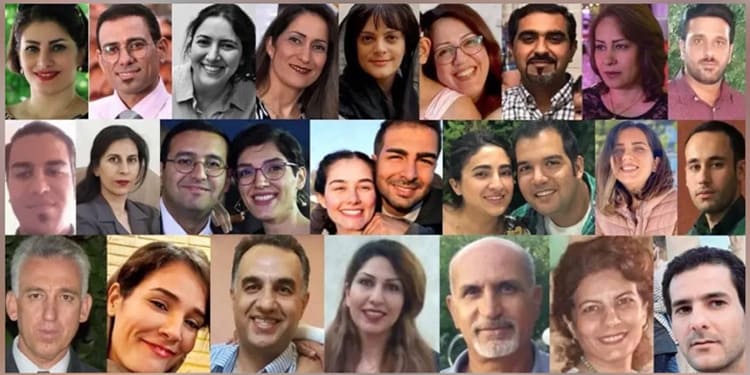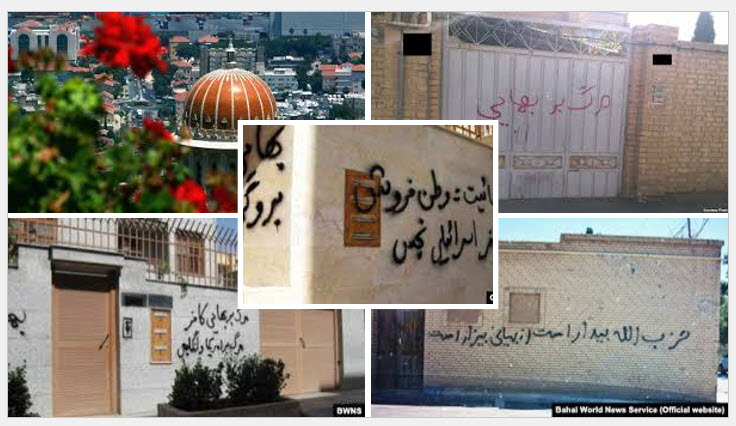
26 Bahai citizens, including 14 Bahai women, were sentenced to 85 years in prison, exile, and deportation by the First Branch of the Shiraz Revolutionary Court on May 29.
26 Bahai citizens, including 14 Bahai women, were sentenced to 85 years in prison, exile, and deportation by the First Branch of the Shiraz Revolutionary Court on May 29. In addition, for the next two years, these individuals must report to the provincial Intelligence Department on a daily basis. Each of the defendants, Yekta Fahandej Saadi, Lala Salehi, Bahareh Nowrouzi, Rezvan Yazdani, and Mojgan Gholampour, received a five-year sentence. Their passports have been revoked for two years, and they are unable to leave the country.
Maryam Islami, Parisa Rouhizadegan, Marjan Gholampour, Shadi Sadeq Aghdam, Ahdieh Enayati, Samareh Ashenaii, Nassim Kashani-Nejad, Sahba Farahbakhsh, and Noushin Zenhari were all sentenced to two years in prison, their passports were also revoked, and banned from leaving the country for two years.
The 14 Bahai women face charges of “assembly and collusion with the intent to commit a crime against internal and external security.”
“Participating and gathering in slums and the outskirts of Shiraz, as well as religious and tourist sites… under the pretext of examining the water crisis and social harms,” the court added. They were also accused of “advocating environmental protection and conspiring to undermine Islamic society’s intellectual and ideological security.”

The 14 Bahai women face charges of “assembly and collusion with the intent to commit a crime against internal and external security.”
The clerical regime regards Bahais as heretics who do not follow any religion. According to rights groups, members of Iran’s estimated 300,000-strong Bahai minority community are routinely arrested for expressing or practicing their beliefs.
Without disclosing evidence, the religious dictatorship has repeatedly charged and detained Bahais for national security-related offenses. Religious minorities in Iran are persecuted systematically for their beliefs. Many fundamental rights are denied to them, including the freedom to practice religious rituals. Bahais, for example, are denied the right to education and employment.

“No one may be molested or taken to task simply for holding a certain belief,” says Article 23 of the mullahs’ Constitution. Many fundamental rights, such as access to education, employment, and political office, are denied to the Bahai people.
MEK Iran (follow us on Twitter and Facebook), Maryam Rajavi’s on her site, Twitter & Facebook, NCRI (Twitter & Facebook), and People’s Mojahedin Organization of Iran – MEK IRAN – YouTu

